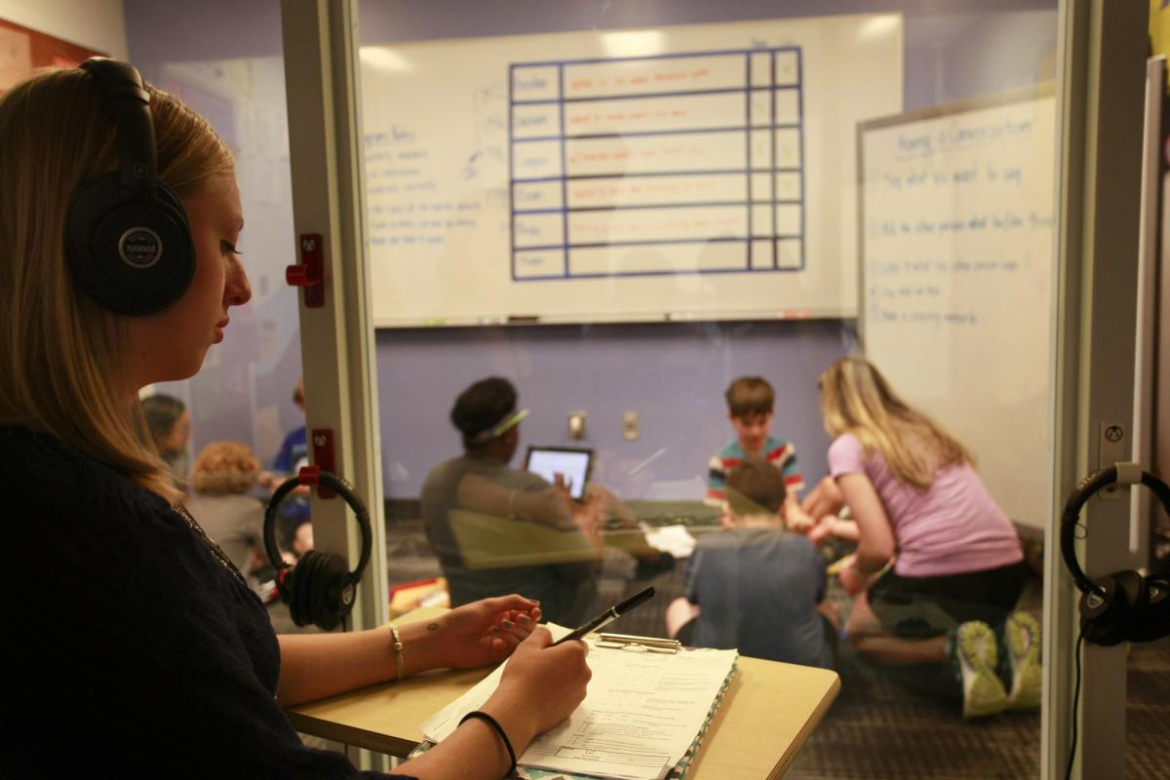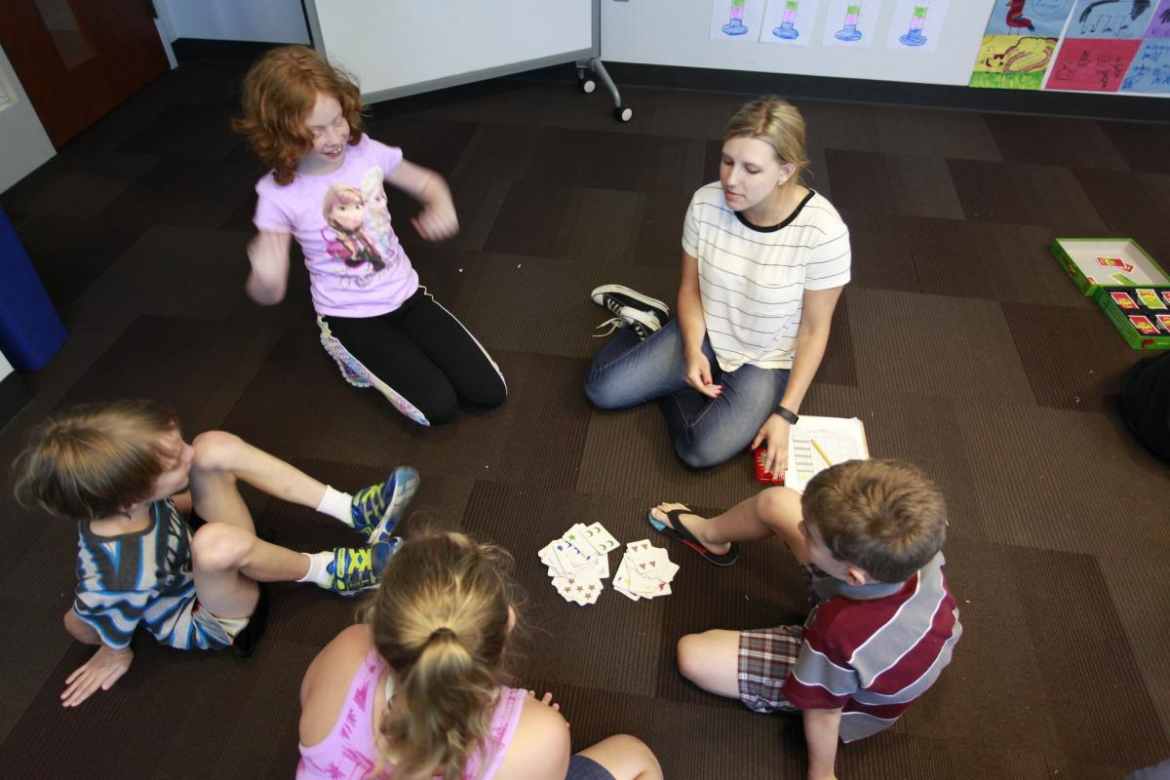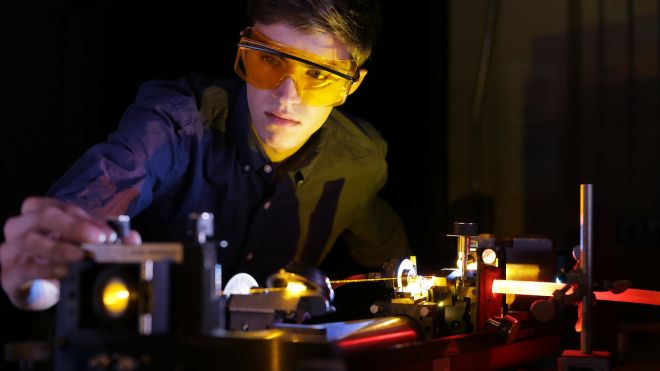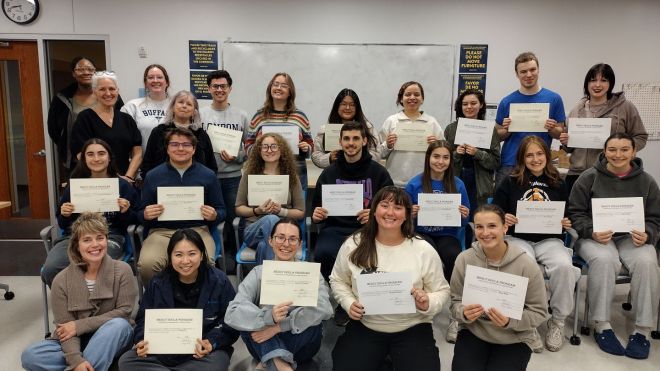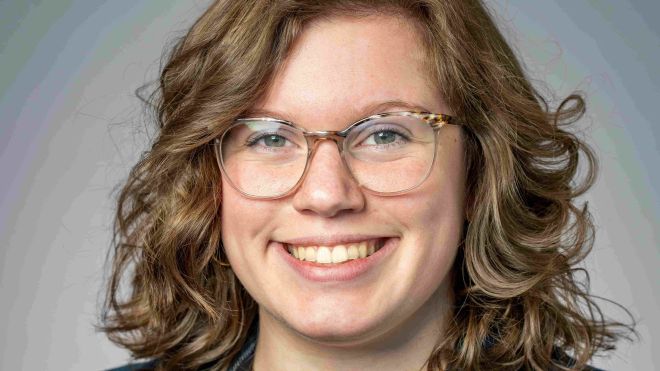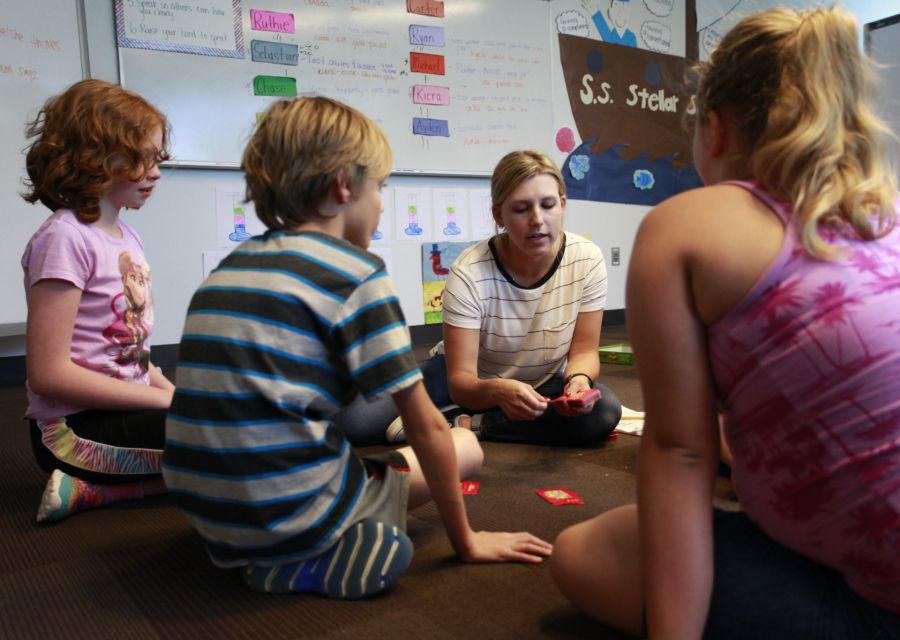
BUFFALO, NY – Researchers at the Institute for Autism Research (IAR) at Canisius University just published results of a 4-year clinical trial that found an innovative outpatient treatment (MAXout) to be highly effective for higher-functioning children with autism spectrum disorder (HFASD). Specifically, children with HFASD who received MAXout demonstrated significantly greater improvements in social skills, ASD symptoms, social-cognitive skills, and problem behaviors compared to children with HFASD in the control group.
Children with HFASD have relative strengths in cognitive and language abilities but significant problems with social understanding, social interactions, and restricted and repetitive behaviors and interests that negatively affect daily functioning and long-term outcomes. According to Marcus L. Thomeer, PhD, one of the study’s authors, “Developing effective comprehensive treatments has been a major challenge due to the multiple and complex impairments of these children”. “An additional challenge has been developing treatments that are adaptable and effective in different settings”, noted Jonathan D. Rodgers, PhD, a co-author on the study. Researchers at the IAR developed one of the first effective comprehensive treatments for children with HFASD; that treatment (summerMAX) was delivered in a summer program format and several clinical trials supported its effectiveness. The researchers then adapted the summer program into a school treatment (schoolMAX) and a recent large-scale clinical trial found it highly effective for elementary-school children with HFASD. Based on the effectiveness of the summer and school treatments, the next logical step was to adapt the treatment into an outpatient model (MAXout) and test its effectiveness.
Findings from the outpatient clinical trial, just published in the Journal of Clinical Child and Adolescent Psychology, provided strong support for the effectiveness of MAXout for children with HFASD.
In this trial, 88 children, ages 7-12 years with HFASD were randomly assigned to either the MAXout treatment or to a waitlist control condition. Children in the treatment were in groups of 4 children and 2 clinical staff. The treatment consisted of two 90-minute sessions per week over 18 weeks (each session included two 45-minute treatment cycles) and targeted social skills, face-emotion recognition, nonliteral language skills, and interest expansion. Treatment was delivered using direct instruction, modeling, role-play, feedback, and repeated practice. A behavioral system was also used to increase positive social behaviors and reduce autism symptoms and negative behaviors, and parent education was provided. Outcomes were assessed prior to treatment, immediately following the 18-week treatment, and again 4 to 6 weeks post-treatment for children in both groups. Results revealed that children with HFASD who received MAXout exhibited significantly greater improvements immediately following the 18-week treatment in their social-cognitive skills (nonliteral language skills) and on parent ratings of targeted social-communication skills, ASD symptoms, broader social skills, and behavior symptoms compared to children in the control group. Further, the significant improvements were all maintained 4 to 6 weeks post-treatment. According to Christopher Lopata, PsyD, the study’s lead author, “The pattern of findings was very promising and the fact that the children maintained their improvements post-treatment supported the durability of the treatment effects. Children with HFASD often have difficulty maintaining treatment-related improvements once an intervention is finished so this finding was especially positive”. This study was funded by United States Department of Defense Grant W81XWH-15-1-0195. The results of this study add to the accumulating body of evidence supporting the effectiveness of treatments developed at the IAR. “We were initially able to develop a highly effective summer program model for children with HFASD” said Thomeer, “and from there we adapted the treatment into other delivery formats including a school program and now this outpatient model. This is the first comprehensive treatment for children with HFASD to be shown effective in outpatient (MAXout), school (schoolMAX), and summer (summerMAX) formats and it addresses the critical need for treatments that are adaptable and effective across settings”. The research team continues to develop new and innovative treatments for this unique population using core therapeutic techniques they have proven effective. “One of the new treatments we have been pilot testing is a parent-delivered social development treatment (homeMAX) for children with HFASD and initial results have been positive” noted Rodgers. “The emergence of the COVID-19 pandemic also allowed us to pilot test a telemedicine version of the homeMAX model and we are evaluating those results now”, he added.For more information regarding the MAXout program, the other MAX programs, and/or the Institute for Autism Research at Canisius University, visit www.Canisius.edu/iar or call the IAR at 716-888-2800.
Canisius University is one of 28 Jesuit colleges in the nation and the premier private college in Western New York. Canisius prepares leaders – intelligent, caring, faithful individuals – able to pursue and promote excellence in their professions, their communities and their service to humanity.

